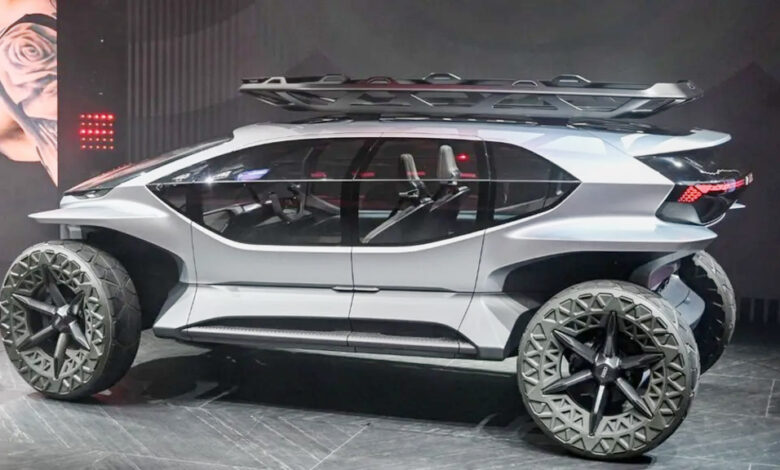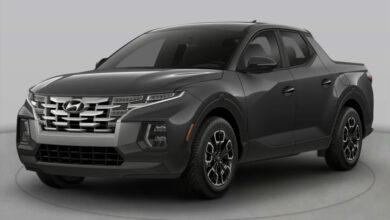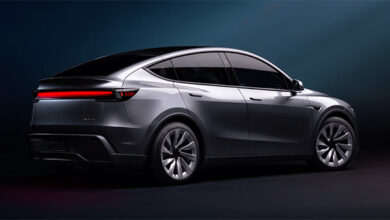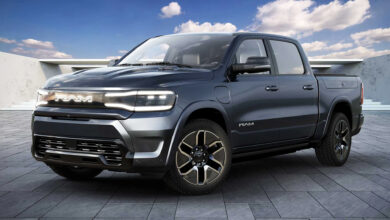Frankfurt Motor Show 2025: The Intersection of Innovation, Industry Struggles, and Electric Cars
Frankfurt Motor Show 2025: The Intersection of Innovation, Industry Struggles, and Electric Cars

The Frankfurt Motor Show: A Mixed Bag of Cars, Technology, and Industry Challenges
I have a love-hate relationship with international motor shows, like the one currently taking place in Frankfurt this week.
On one hand, if you’re passionate about cars and can’t resist the allure of cutting-edge automotive technology, the displays are nothing short of breathtaking. Manufacturers invest vast sums into developing their latest vehicles, each packed with advanced features that seem capable of doing everything short of brushing your teeth. The goal, of course, is to wow you.
But there’s also a significant downside. The sheer scale of these events is overwhelming. Hundreds of exhibitors, with hundreds of thousands of visitors, all squeezed into enormous pavilions the size of multiple football fields.
Press day, in particular, feels like a sensory overload. Every brand has its own flashy presentation, complete with lights, videos, and booming soundtracks. Often, these presentations happen simultaneously, contributing to a chaotic, noisy environment. Navigating this is a challenge; in Frankfurt, it can take you up to 20 minutes to get from one end of the show to the other. Yesterday alone, I walked more than eight miles (13 kilometers) between interviews. As a colleague jokingly said, “Why does BMW have to be in another bloody postcode?”
So, why endure all this? For starters, it’s the best way to gauge the pulse of the automotive industry. You get to see what manufacturers are thinking, what’s exciting them, and what they’re worried about. After attending so many of these shows over the years, I can tell you that each one feels different.
In recent years, the two biggest topics have been electrification and automation.
At major European shows like Frankfurt, Geneva, and Paris, discussions about battery-powered cars and self-driving vehicles have dominated the conversation. But this time in Frankfurt, what was once mere speculation is now turning into tangible products. The launch of Volkswagen’s ID.3, for instance, is being hailed as a milestone. It’s not particularly flashy or exotic in design, but it’s a landmark because it’s the first fully electric vehicle Volkswagen has built from the ground up, marking the beginning of a €30 billion investment plan to make the company a global leader in electric cars.
There’s an irony to this, though. Just four years ago, Volkswagen was embroiled in scandal. It was at the 2015 Frankfurt show when the company was accused of deliberately manipulating emissions tests. That scandal cost them billions in fines and forced a major shift in corporate strategy. Today, however, the VW Group finds itself well-positioned to lead the electric car race, with other manufacturers having little choice but to follow suit. However, established players like Renault, Nissan, and Kia will still fiercely compete for market share in the affordable EV space.
New EU emissions regulations, set to be enforced starting next year, will require carmakers to dramatically reduce the average emissions from their fleets or face steep fines. These rules will apply to new car registrations, meaning that manufacturers will need to sell low-emission cars, not just develop them and leave them sitting in a warehouse.
This regulatory pressure is causing some concern among automakers. One major challenge with electric cars right now, aside from issues like charging infrastructure, is their higher production costs compared to traditional vehicles. This leads to higher prices for consumers, yet lower profit margins for manufacturers. While the industry hopes that economies of scale will lower these costs in the future, this is still a significant hurdle.
The industry is also grappling with a slowing global economy, falling sales in key markets, and increasing trade tensions. As Jaguar Land Rover’s CEO, Ralf Speth, put it, this is all creating a “perfect storm” for the sector.
Given these pressures, it’s no surprise that this show has seen fewer of the bold concept cars we’re used to seeing. At previous events, we’ve been wowed by wild, futuristic designs that show off how self-driving cars might integrate into our lives – like Renault’s “car-in-your-living-room” concept.
This time, however, manufacturers are focused on getting electric cars into production and on the market. Automated driving technology is still advancing rapidly, and systems like lane-keeping assistance are finding their way into cars on showroom floors. But for now, the truly sci-fi concepts seem to be taking a backseat.
Audi, however, hasn’t completely abandoned its futuristic ideas. Their AI:Trail concept is a self-driving off-road vehicle that looks like something straight out of a Mad Max movie – a cross between a lunar rover and an extreme off-roader, complete with drones for headlights.





